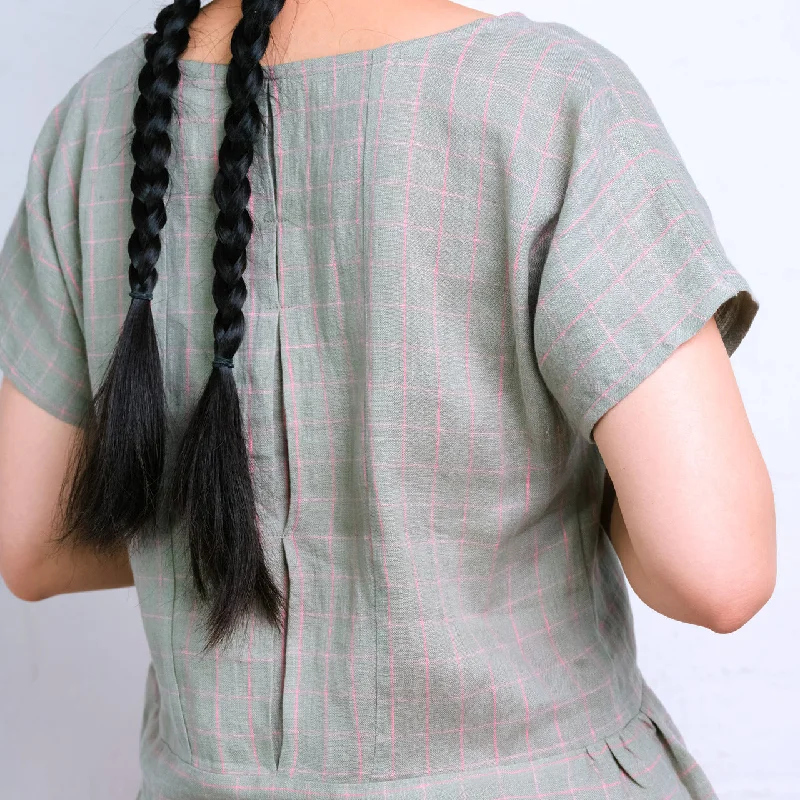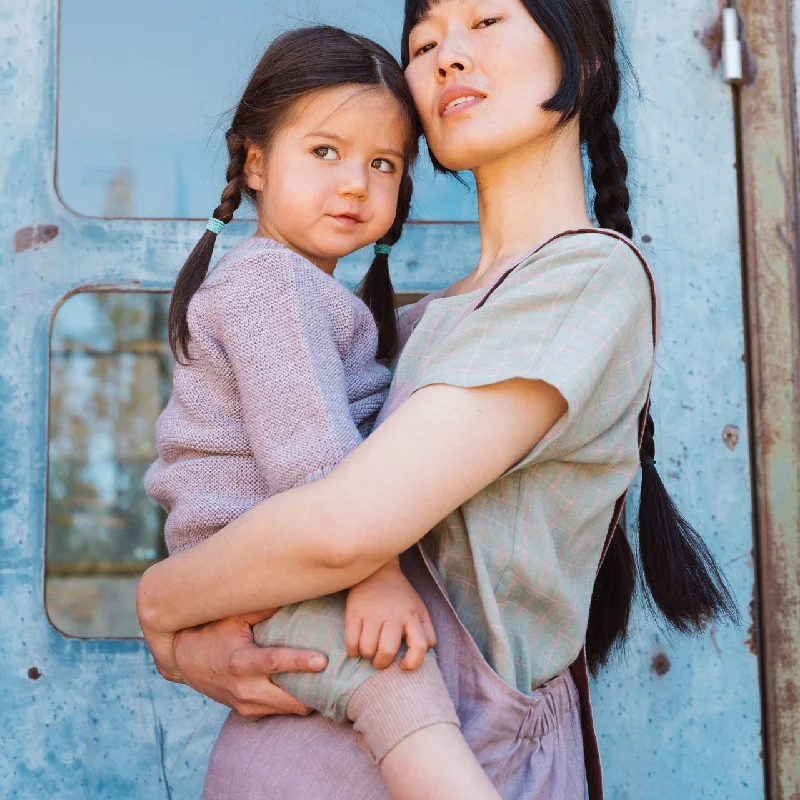Umiform's Pieces Top in a beautiful quality European 100% linen in a sage green with a hot pink pinstripe check. Looks great with the matching Pocket Skirt or the Old Soul Pink Twill Skirt!
This comfortable, flattering and boxy Women's top was originally designed to use up linen offcuts and ensure very little fabric waste. Features side pleats, a selvedge hem and box pleats in the back panel. This cool and breezy linen and cotton blend is perfect for summer.
Breastfeeding? Wear over the for easy lift-up-pull-down access.
Made in Melbourne by UMIFORM for Woollykins
Colour: Sage Pink Check
Sizes: S-M (8-12), M-L (12-16)
Measurements: taken FLAT, compare to a similar fitting garment.
S-M: chest width 49cm, Length 55.5cm
M-L: chest width 51.5cm, Length 56.6cm
Brand: UMIFORM
Designed in: Castlemaine
Made in: Melbourne
Fabric: European Linen 100% grown and produced in small batches in Lithuania
Certifications: Oeko Tex certified
Fabric structure: 100% linen (170gsm)
Dyes: AZO free
100% Biodegradable: Yes
Machine Washable: Yes
Care: max 30º gentle machine wash. Line dry. Iron if preferred.
--
UMIFORM designs and makes utilitarian clothing for mothers who appreciate beautiful textiles. Handmade in small batches in Melbourne with a waste-free production - all surplus fabric going into childrenswear and mending kits.
--
Linen's eco credentials:
Linen is naturally stain resistant, does not pile, and is moth repellent. It is easy to wash and is a very strong fibre.
It is anti-bacterial, anti-fungal, hypo allergenic and thermoregulating, it will also absorb up 20% moisture before feeling damp.
Flax is a strong plant best grown in northern Europe. It needs little or no fertilisers and due to the local climate, little extra water. It doesn’t really require pesticides either as it can grow in poor quality soil. The Advisory Commission Report to the European Parliament stated that flax cultivation has positive effects on eco-system diversity as it allows for an “environmental pause”. One hectare of flax can retain 3.7 tonnes of CO2. Every part of the plant is used, what isn’t used to produce linen can be used to make linseed oil, paper, cattle feed or even soap.
Linen is therefore almost naturally organic. It is completely biodegradable, recyclable and due to its natural absorbency, it requires less dye than cotton. Linen therefore scores high on the ecological chart.


